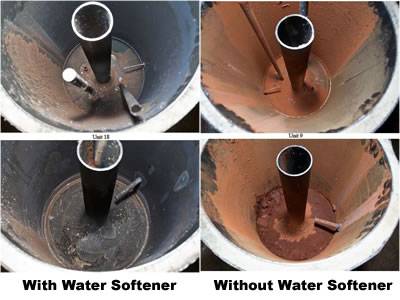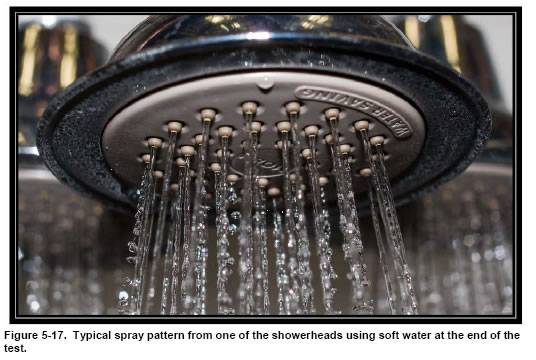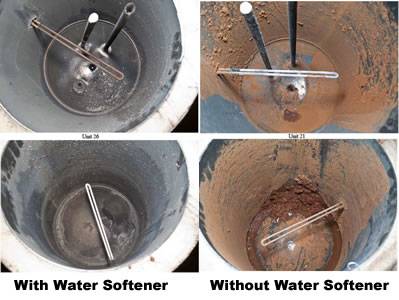Lisle, Illinois — Water softeners can save significant amounts of money and energy in the home, a major new study by the independent Battelle Institute revealed.
Softeners help preserve the efficiency of water heaters and major appliances and keep showers and faucets unclogged, the report found. The study was commissioned by the Water Quality Research Foundation (WQRF) in 2009. Battelle Memorial Institute is a renowned independent testing and research facility dedicated to applied science and technology development.
Among some of the key findings of the study:
Gas water heaters:

Every five grains per gallon (gpg) of water hardness causes a 4% loss in efficiency and a 4% increase in cost for gas storage tank water heaters when using 50 gallons of hot water per day. On 30 gpg hard water, thats 24% less efficient than with softened water.
Every five grains per gallon (gpg) of hardness causes an 8% loss in efficiency and an 8% increase in cost when using 100 gallons of hot water per day in a gas storage tank water heater. On 30 gpg hard water, thats 48% less efficient than with softened water.
Electric water heaters:
Up to 30 pounds of calcium carbonate, a rocklike scale buildup, can accumulate in these heaters over time, according to the study. The life of the heating element will be shortened due to scale buildup because of the increased operating temperature of the heating element.
Also, every five gpg of water hardness causes 0.4 pounds of scale accumulation each year in electric storage tank household water heaters. This scale buildup adversely affects the water heater’s performance. Battelle says the life of the heating element can be expected to shorten in electric storage water heaters operating on unsoftened water, due to scale buildup increasing the operating temperature of the element.
Tankless heaters:
Indoor instantaneous gas water heaters (tankless heaters) operated on softened water maintained the original factory efficiency rating over a 15-year lifetime.
The study found that tankless water heaters completely failed to function because of scale blockage in the downstream plumbing after only 1.6 years of equivalent hot water use on 26 gpg hard water. Softened water saves 34% on costs compared to operating on 20 gpg and saves 47% compared to operating on 30 gpg hard water.
Showerheads and faucets:

Appliances:
In the study, dishwashers and washing machines were operated for 30 days and 240 completed wash cycles using soft and hard water sources. The units using soft water were almost completely free of any water scale buildup. As the report states, they appeared as if they could be cleaned up to look like new with just a quick wipe down. The appearance of the inside of units using hard water showed the need for deliming and cleaning due to the buildup of scale and deposits.
WQA is a not-for-profit association that provides public information about water treatment issues and also trains and certifies professionals to better serve consumers. WQA has more than 2,500 members internationally.





